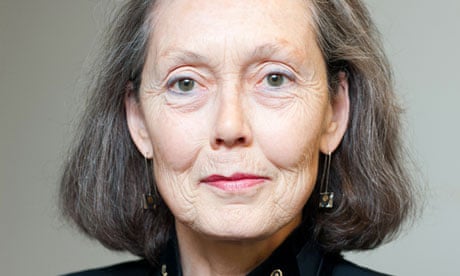
An Evening with Joseph Conrad
Joseph Conrad gave a reading at the London Library. A red-haired woman came up afterward. He had seen her circling earlier, taking a chair at the back, but he had not troubled about it. “I knew you in the Congo,” she said now. “I knew your wife.” My wife? he thought, but, as always after a reading, in the retreating roar of his own soul he could barely hear her or remember how English worked. Had she said “life,” not “wife”? Her voice, that of a crow, thrust at him—some weekend they’d “all spent together” and he’d sent her a letter the next day, a poem. Dread rose at the back of his mind; a parcel broke. He turned away, busied himself. He blamed, abhorred the touch of a past time; it surprised him how much. She followed him to the dinner that Charles (the London Librarian) had arranged at a nearby bistro, hurrying along behind everyone else, and, with the touch of his wife or his life burning like a toxin on his inside skin, Joseph Conrad could not meet her eyes or let pathos come clouding into him. When she seated herself at the foot of the table and was speaking loudly to anyone who listened, he felt the pluck of it on the side of his head but did not turn, he had to continue, now he’d begun, it was a long dinner. It was unjust. In other contexts, he admired perseverance. She was drowning. He did not turn. The light of pure reason, Joseph Conrad liked to say, resembles electricity in being cold. Proud statements like this came to him now and again when he was swimming but afterward seemed a bit off. No, it was a little nightmare, it was a rescue he could not carry out (and he was a rescuer).
But eventually the dinner ended. It was still 1907. No one had drowned. Shrugging into coats, they said hearty farewell things. He did not catch her eye. All left together to walk back toward the Library and go their ways. It was an early winter night. He began to feel fundamentally impatient with himself, hot with cowardice. He dropped back to walk beside her. His heartbeat was too fast. She did not seem surprised. An unknownness enveloped them, as if they were playing a game, as if they were draped in cloth or lost in old rooms. How they got to talking about white bread he could not remember afterward, but it shone in his mind, this conversation, as the bread had shone, and he was trying to tell her all that. Maybe she had mentioned lining up for bread in the early-morning dusk, sent out by her mother, running home with a loaf as heavy as two schoolbooks. When one dreamed of bread even now, Joseph Conrad agreed with her, it was not the rough black bread of childhood. Dream bread, mythic bread, was as white as a freshly laundered cuff.